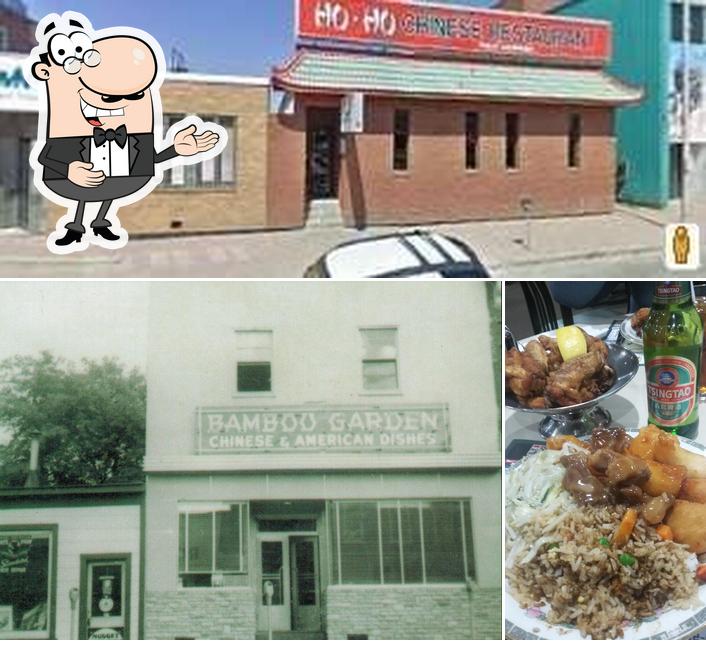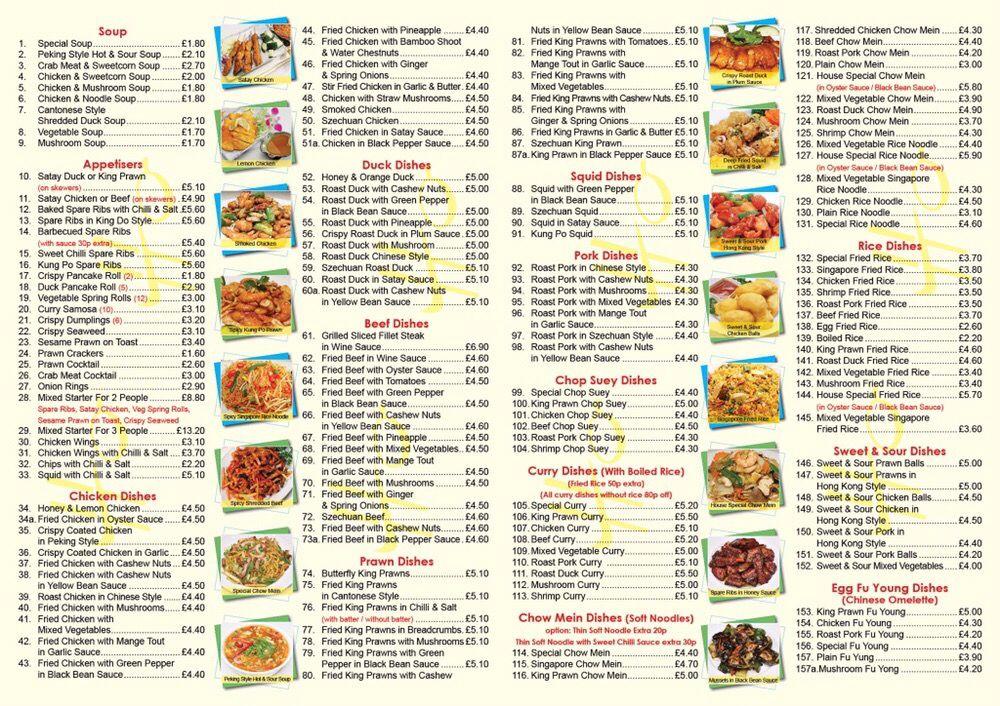Embark on a gastronomic journey with Ho Ho Chinese language meals, a culinary tapestry that weaves collectively historical past, tradition, and beautiful flavors. From its humble origins to its modern-day variations, Ho Ho has captured the hearts and palates of meals lovers worldwide, providing a tantalizing mix of textures, aromas, and tastes.
Uncover the secrets and techniques behind Ho Ho’s creation, the strategies that carry its flavors to life, and the regional variations that showcase China’s numerous culinary panorama. Discover its cultural significance, dietary worth, and the way it continues to evolve, delighting diners with its timeless enchantment.
Historic Origins of Ho Ho Chinese language Meals

Ho Ho Chinese language meals has a wealthy historical past and cultural significance, deeply rooted within the culinary traditions of China. Its origins will be traced again to the Tang dynasty (618-907 AD), the place it was referred to as “lotus seed cake.” This early model of Ho Ho was a candy pastry crammed with lotus seed paste, representing prosperity and luck.
Over time, Ho Ho developed and unfold all through China, changing into a preferred road meals and a staple in lots of regional cuisines. Within the Ming dynasty (1368-1644 AD), Ho Ho was launched to the imperial court docket and have become a delicacy loved by the the Aristocracy.
It was throughout this era that Ho Ho acquired its distinctive purple coloring, symbolizing pleasure and celebration.
Reputation in Completely different Areas
Ho Ho is extensively loved throughout China, with variations in its elements and preparation strategies relying on the area. In northern China, Ho Ho is usually made with a candy bean paste filling, whereas in southern China, it’s extra frequent to seek out Ho Ho crammed with lotus seed paste or purple bean paste.
The outer layer of Ho Ho may differ, with some areas utilizing a glutinous rice flour dough and others utilizing a wheat flour dough.
Elements and Preparation Strategies

Ho Ho Chinese language meals is famend for its distinct flavors and textures, achieved by a cautious steadiness of elements and meticulous preparation strategies.
Typical Elements
The first elements utilized in Ho Ho dishes embody:
- Recent greens: bok choy, Chinese language cabbage, snow peas, bamboo shoots
- Meat: rooster, beef, pork, shrimp
- Seafood: fish, scallops, crab
- Sauce base: soy sauce, hoisin sauce, oyster sauce
- Spices and aromatics: garlic, ginger, inexperienced onions, sesame oil
Preparation Strategies
Ho Ho dishes are usually ready utilizing conventional strategies which have been handed down by generations. These strategies embody:
- Stir-frying:A high-heat cooking method the place elements are tossed and turned shortly in a wok or massive skillet.
- Steaming:A delicate cooking methodology the place meals is positioned over boiling water or broth and cooked with steam.
- Deep-frying:A technique the place meals is submerged in scorching oil till crispy and golden brown.
- Braising:A mixture of searing and simmering, the place meat is browned after which cooked slowly in a flavorful liquid.
Balancing Flavors and Textures
The important thing to making a profitable Ho Ho dish lies in balancing the flavors and textures of the elements. That is achieved by:
- Use of contrasting flavors:Candy and bitter, salty and spicy flavors are sometimes mixed to create a dynamic style expertise.
- Texture selection:Crispy, tender, comfortable, and chewy textures are integrated so as to add curiosity and depth to the dish.
- Cautious seasoning:Spices and aromatics are used to boost the pure flavors of the elements with out overpowering them.
Regional Variations and Types: Ho Ho Chinese language Meals
Ho Ho Chinese language meals reveals numerous regional variations, influenced by native culinary traditions, cultural preferences, and geographical components. These variations manifest in distinct taste profiles, cooking strategies, and elements, making a vibrant tapestry of Ho Ho dishes throughout China.
The northern areas of China, recognized for his or her wheat-based delicacies, typically characteristic Ho Ho dishes with a thicker, doughy exterior and a hearty filling. In distinction, southern areas, with their emphasis on rice and seafood, produce Ho Ho with a thinner, crispier shell and a lighter, extra delicate filling.
Jap China, Ho ho chinese language meals
Ho Ho from japanese China, notably the Jiangsu and Zhejiang provinces, are famend for his or her delicate flavors and stylish presentation. These Ho Ho typically characteristic a skinny, crispy exterior and a filling constructed from contemporary seafood, greens, and minced pork.
They’re usually steamed or fried till golden brown.
Northern China
Northern Chinese language Ho Ho, reminiscent of these from Beijing and Tianjin, are characterised by their thick, chewy exterior and sturdy fillings. These Ho Ho are sometimes full of a mix of pork, beef, or lamb, together with greens like cabbage or carrots.
They’re usually boiled or steamed and served with a dipping sauce.
Southern China
Ho Ho from southern China, notably the Guangdong and Fujian provinces, are recognized for his or her gentle, crispy texture and contemporary elements. These Ho Ho typically characteristic a filling constructed from shrimp, fish, or greens, and are usually steamed or fried.
They’re typically served with a candy and bitter dipping sauce.
Ho Ho in Trendy Delicacies
Ho Ho Chinese language meals has developed significantly in current occasions, adapting to up to date eating developments and culinary improvements. Cooks have creatively integrated Ho Ho elements and flavors into fusion dishes and ingenious culinary creations, increasing its enchantment past conventional Chinese language delicacies.
Use of Ho Ho Elements in Fusion Dishes
- Ho Ho sauce is more and more used as a glaze or marinade for grilled meats, poultry, and seafood, including a candy and savory umami taste.
- Ho Ho paste is mixed into sauces, dips, and condiments, imparting its distinctive mix of spices and aromatics.
- Ho Ho powder is sprinkled on stir-fries, salads, and soups, offering a delicate however flavorful enhancement.
Modern Culinary Creations
Modern cooks have showcased Ho Ho’s versatility by incorporating it into novel culinary creations:
- Ho Ho-infused ice cream and desserts, providing a singular and indulgent fusion of candy and savory.
- Ho Ho-glazed pork stomach buns, combining the richness of pork with the fragrant complexity of Ho Ho sauce.
- Ho Ho-seasoned popcorn, making a savory and addictive snack with an surprising twist.
Ho Ho in Trendy Chinese language Eating places
In trendy Chinese language eating places, Ho Ho continues to be a beloved staple. Cooks typically reinterpret conventional Ho Ho dishes, presenting them with trendy twists and refined displays. Ho Ho can be more and more featured in tasting menus and fusion-inspired dishes, showcasing its adaptability and culinary potential.
Attraction to Worldwide Audiences
Ho Ho’s distinctive taste profile has garnered worldwide enchantment. Its mixture of candy, savory, and fragrant parts resonates with numerous palates, making it a preferred alternative in Chinese language eating places worldwide. Cooks outdoors of China are additionally experimenting with Ho Ho elements, incorporating them into their very own culinary creations.
Cultural Significance and Symbolism
Ho Ho Chinese language meals holds important cultural significance in Chinese language society, embodying each custom and symbolism. It performs a pivotal position in numerous festivals, celebrations, and household gatherings.
Throughout the Spring Pageant, crucial vacation in China, Ho Ho symbolizes prosperity and luck. Its spherical form represents fullness and completeness, whereas the candy filling signifies a affluent and fulfilling life.
Function in Chinese language Festivals and Celebrations
- Lunar New 12 months:Ho Ho is an indispensable deal with in the course of the Lunar New 12 months celebrations. Its presence on the desk symbolizes abundance and a candy begin to the brand new yr.
- Mid-Autumn Pageant:Ho Ho can be related to the Mid-Autumn Pageant, which celebrates the harvest moon. The spherical form of Ho Ho echoes the form of the total moon, symbolizing household reunion and concord.
- Weddings:Ho Ho is commonly served at Chinese language weddings, representing sweetness and pleasure for the newlyweds.
Cultural Beliefs and Traditions
Ho Ho is greater than only a meals merchandise; it embodies cultural beliefs and traditions in Chinese language society.
- Image of Hospitality:Providing Ho Ho to company is taken into account a gesture of hospitality and welcome.
- Good Luck Attraction:Ho Ho is believed to carry good luck and fortune when given as a present.
- Lunar New 12 months Custom:Throughout the Lunar New 12 months, it’s customary to offer Ho Ho to household and associates, symbolizing good needs and prosperity for the approaching yr.
Well being and Dietary Elements

Ho Ho Chinese language meals gives a spread of dietary advantages and potential drawbacks. Understanding these features is essential for incorporating Ho Ho dishes right into a balanced and nutritious diet.
Dietary Worth
Ho Ho dishes are typically wealthy in carbohydrates, offering power for the physique. Additionally they comprise average quantities of protein, which is important for tissue restore and progress. Moreover, Ho Ho can present fiber, nutritional vitamins, and minerals, relying on the particular elements used.
Well being Advantages
Consuming Ho Ho dishes carefully can supply a number of well being advantages:
- Gives power:The excessive carbohydrate content material in Ho Ho dishes gives a fast supply of power, making it a great possibility for energetic people or those that want a fast increase.
- Helps muscle well being:The protein content material in Ho Ho dishes helps preserve and restore muscle tissue.
- Could enhance digestion:Ho Ho dishes typically embody fiber, which might promote common bowel actions and enhance digestive well being.
Potential Drawbacks
Extreme consumption of Ho Ho dishes may pose some well being dangers:
- Excessive in energy:Ho Ho dishes are usually excessive in energy, which might contribute to weight achieve if consumed in massive parts.
- Excessive in sodium:Many Ho Ho dishes are excessive in sodium, which might contribute to hypertension if consumed excessively.
- Could comprise unhealthy fat:Some Ho Ho dishes might comprise unhealthy fat, reminiscent of trans fat or saturated fat, which might enhance the chance of coronary heart illness.
Incorporating Ho Ho right into a Balanced Weight loss program
To benefit from the well being advantages of Ho Ho Chinese language meals whereas minimizing the potential drawbacks, think about the next suggestions:
- Select lean choices:Go for Ho Ho dishes made with lean protein sources, reminiscent of rooster or tofu, and restrict dishes made with fatty meats.
- Management portion sizes:Take note of portion sizes to keep away from overeating and consuming extreme energy.
- Stability with different meals:Embody Ho Ho dishes as a part of a balanced meal that features fruits, greens, and entire grains.
Clarifying Questions
What’s the origin of Ho Ho Chinese language meals?
Ho Ho traces its roots again to historical China, the place it was a preferred road meals. Over time, it developed right into a extra refined dish, gaining recognition in numerous areas and changing into an integral a part of Chinese language delicacies.
What are the important thing elements utilized in Ho Ho?
Ho Ho usually consists of a savory filling, reminiscent of pork, beef, or greens, wrapped in a skinny, doughy pores and skin. The filling is commonly seasoned with soy sauce, ginger, garlic, and different spices, whereas the dough is constructed from wheat flour and water.
How is Ho Ho historically ready?
Conventional Ho Ho is steamed, leading to a young and juicy filling encased in a comfortable and pliable dough. Nevertheless, trendy variations might contain pan-frying or deep-frying, creating completely different textures and flavors.




